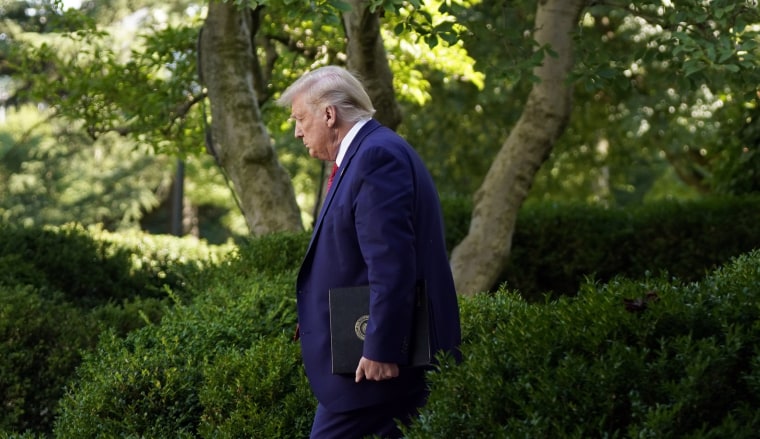President Donald Trump's lawyers told a federal judge on Wednesday that they intend to keep fighting a New York grand jury subpoena for his tax returns and will file their legal objections before the end of the month.
Both Trump and the Manhattan district attorney, Cyrus Vance, called for an expedited process in a joint filing before a federal district court judge in New York. Trump's lawyers said they would file their initial objection to the subpoena by July 27. The final legal briefs from both sides would be due Aug. 14.
Trump's lawyers said the president intends to take full advantage of the avenues the Supreme Court left open to him in its ruling last week. The justices rejected his claims that he is absolutely immune from state grand jury subpoenas.
The Trump court filing said he is likely to claim that the subpoena is too broad, is motivated by a desire to harass, is meant to manipulate his policy decisions or retaliate against him for official acts, and would impede his ability to carry out his duties. They also say they'll need to know more about "the nature and the scope" of the investigation so they can evaluate whether the grand jury needs everything it's requesting.
But Vance said Trump can oppose the subpoena only on the same grounds that anyone else would and cannot claim he's entitled to special consideration because he's the president. As for his potential claims, Vance said the federal judge has already ruled that there was no bad faith or attempt to harass and that compliance with the subpoena would not substantially impair the president's ability to carry out his official duties.
It would be "highly irregular and inappropriate" for the president's lawyers to inquire into why the grand jury wants the materials, Vance said. "If the president has anything left to say," then Trump should do so "with all appropriate haste," he told the court.
The judge, Victor Marrero, scheduled a hearing for Thursday to discuss the potential briefing schedule.
Also on Wednesday, Vance asked the U.S. Supreme Court to immediately transmit its ruling in the Trump tax case so the lower court proceedings can go ahead without delay.
Supreme Court decisions don’t usually take effect immediately. Normally the court would not send its ruling back to the lower courts for at least 25 days after a decision is issued. Vance is asking the court to speed that process up “to ensure that the state grand jury has access to all of the evidence to which it is entitled in a timely fashion – thereby minimizing any risk that criminal conduct will go unpunished.”
Vance’s request says if the courts don’t move quickly, the statutes of limitations might lapse on some potential conduct. “Given the age of many of the transactions at issue in the grand jury’s investigation, issues could arise in the near future concerning the applicable statutes of limitations.”
If there’s too much delay, Trump might get “the absolutely immunity that this court rejected.”

